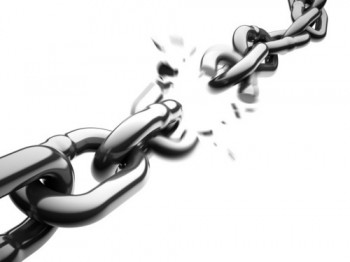 When it comes to entrepreneurship, it’s worth noting that not all founders are created equal.
When it comes to entrepreneurship, it’s worth noting that not all founders are created equal.
Why does this matter? Because the type of entrepreneur you are dictates a plethora of different business variables, such as your management style. Personality characteristics and traits have a direct and impactful effect on the achievement potential of an entrepreneur over the course of their career.
What makes the difference? The overwhelming differentiator between those who catapult themselves forward and those who continue to drag their feet is simple: deciding to take some of the below into account when making fundamental business decisions (or not). Those who do will play toward their strengths and outsource their weaknesses to others much smarter than themselves in a particular area of expertise. Those who do not – good luck.
The below details several types of entrepreneurs, alongside the pros and cons associated with each particular personality style. Figure out which personality you are and learn how to leverage those characteristics to your advantage.
The Gung Ho Enthusiast
This entrepreneur has an enviably enthusiastic attitude about their company. The trouble is, they also have unrealistic expectations and believe their new business will become the best thing since sliced bread overnight. That very rarely happens.
Keep the enthusiasm – it is what keeps many entrepreneurs going when things get tough. However, be a little more realistic. It’s better to have lower expectations, and exceed them, than to aim too high, and miss your goals.
The Passionate One
These entrepreneurs are driven by one thing and one thing only – a passion for their business and/or industry. While they may be the best in the business at what they do, they usually lack business acumen, or even the inclination to prioritize and tackle imperative tasks (especially at scale) such as administration and finances.
Passion is important– it will make going to work feel like anything but a job. However, business does require you to do the tasks you do not like to do from time to time. Aim for a healthy balance and you will be just fine.
The Business Veteran
Business veterans are older entrepreneurs (50+ yrs) who have been around the block a time or three. While they have the skills and knowledge to make a business work, they shy away from technology and other modern approaches to business. That can mean a significant up-tick in the amount of intensive labor needed versus integration of simple, new and innovative solutions.
Leveraging decades of business knowledge to build a company is what makes ‘gray hairs’ so prized in organizations at any stage. Just make sure to combine lessons learned with innovative and up-to-date time saving methods and technologies. If you’re not comfortable with doing so, hire a team that is, and while you take care of the business, let them take care of the tech integration.
The Lone Wolf
This entrepreneur tries to do everything, and be everything to everyone, all by themselves. While it’s great to know every aspect of your business inside and out, no man is an island, as they say. If you try to sustain the lone wolf approach for too long, you’re heading one way: burnout.
If you can’t afford to hire staff to help you full-time, find people or companies you can outsource some of your work load. This is especially true for mundane tasks – after all, time is money, isn’t it?
The Ideas Guy
Another type of entrepreneur is someone who is brilliant at developing new ideas, but not so great during integration. Either the idea never makes it off the drawing board, or it fizzles out along the way, because this personality lacks the appropriate skill set to both envision and implement.
Ideas are the lifeblood of entrepreneurship. If you are not too great at taking them from concept to product, enlist a partner who is able to do so. A well balanced team, made up of an idea person and a ‘doer’ is the entrepreneurial dream team.
The Philanthropist
This entrepreneur usually spots a need for a certain industry in their community or elsewhere, or they find a way to help communities by starting a small business of some kind.
While helping people is a worthwhile cause, the first goal of any entrepreneur is to have a profitable business. Do not let your need to help others cloud your business sense. Find a balance between helping others and growing your business – this way you can achieve all of your goals.
What Kind of Entrepreneur Are You?
I am sure there are plenty of folks out there who could add a few types of entrepreneurs to this list. Nevertheless, the fact remains that all entrepreneurs have strengths and weaknesses. How an entrepreneur decides to leverage those strengths and weaknesses (and keep them top of mind) will determine how successful they are over the course of their career.
If you haven’t seen a description that suits your entrepreneurial style on this list, then why not sit down with a piece of paper and list the areas where you are strong, alongside what needs work? Then, develop ideas to get around those weaknesses, and capitalize on strengths. Essentially, do a SWOT analysis on yourself – strengths, weaknesses, opportunities, threats.
Each and every one of us has the potential to succeed as an entrepreneur. Being honest about what you can and cannot do is the first step toward accomplishment. So figure out where you excel, where you may need a little help, and then go out there and crush it.
Originally posted on Garywhitehill.com
